Dehugaon’s local butcher learnt on WhatsApp that he couldn’t sell meat, something he had done for 40 years. mid-day visits Sant Tukaram’s birthplace to watch the respecting faith Vs caste supremacy debate play out
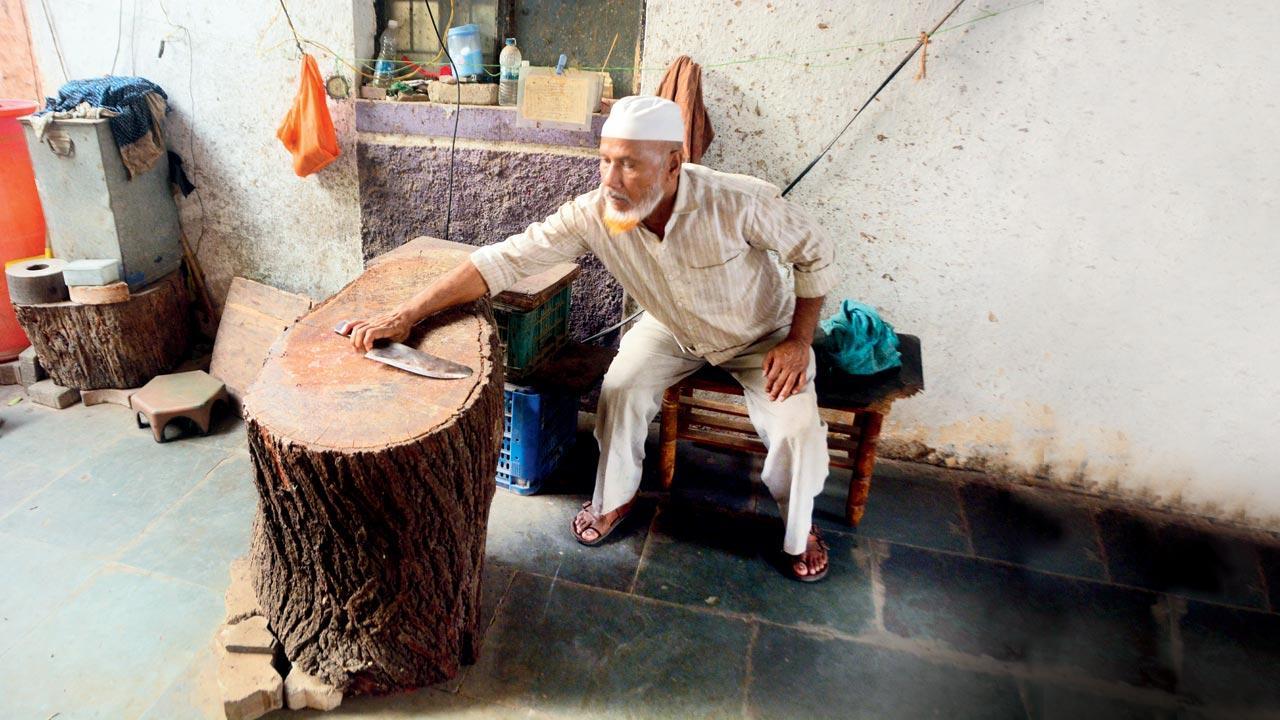
Ahmed Ibrahim Kazi, who has sold chicken from his home for decades, says he must depend on his daughters for sustenance. Pic/Sameer Markande
Dehugaon: For this writer from Mumbai, meat ban has been a distant problem. Barring friends, who’ve told us about how certain housing societies in the city discourage the cooking and consumption of non-vegetarian food on their premises, the issue has never seemed close to home. Perhaps just a little, when the BJP government imposed a beef ban in Maharashtra back in 2015. But that was it. Recent events, though, have been alarming enough to rattle this confidence.
ADVERTISEMENT
First, came the bugle call against halal meat in Karnataka, followed by the demand for shutting meat shops in the national capital during nine days of Navratri—all in the span of a few days. Around the same time, a blink-and-miss report mentioned that Dehu, a village in Maharashtra, had banned the sale of raw and fresh meat fish, starting this month. And that was enough to have us make the three-and-a-half hour journey from Mumbai to the heartland.
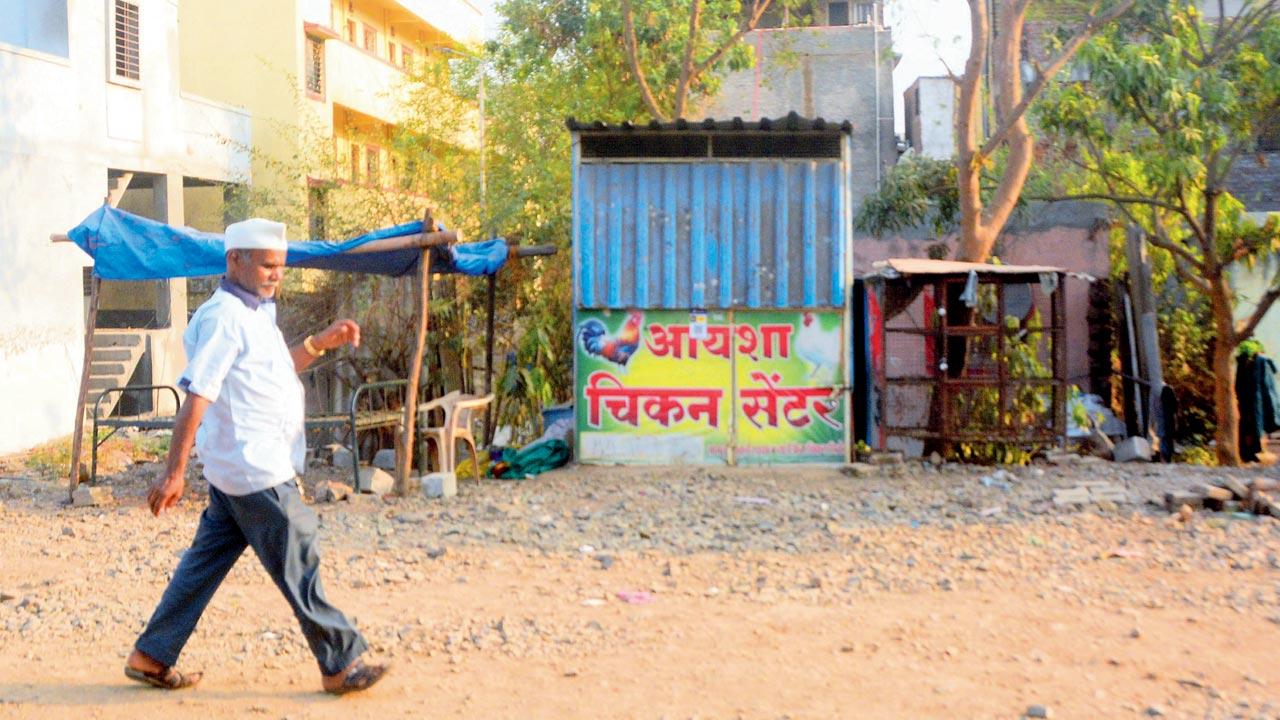 The selling of cooked or raw meat has been banned since April 1 in Dehugaon. A flying squad was instated in case anyone didn’t follow orders, but authorities said that locals willingly complied. Pics/Sameer Markande
The selling of cooked or raw meat has been banned since April 1 in Dehugaon. A flying squad was instated in case anyone didn’t follow orders, but authorities said that locals willingly complied. Pics/Sameer Markande
Dehugaon is one of the most important pilgrimage sites in Maharashtra. Lakhs of devotees from the Varkari community throng here every year, on their way to Alandi and Pandharpur, as part of the yatra, in the honour of Lord Vitthal. The birthplace of Sant Tukaram Maharaj, the renowned Bhakti poet-saint who lived in the 17th century, the temple town is steeped in rich legend and lore. It is here that the seeds of Tukaram Maharaj’s Bhakti tradition were first sown; his soulful abhangs became the weapon to counter Brahmanical supremacy.
The trip here was delayed by a day because of a series of unanticipated events that has stirred the village into working overtime. On March 29, two days before the meat sale ban in Dehu, descendants of the saint, who are also trustees of the Shri Sant Tukaram Maharaj Sansthan, had visited Prime Minister Narendra Modi in Delhi, “to thank him for identifying a designated road for the annual pilgrimage on foot to Pandharpur”. PM Modi, on his part, had accepted a long-pending invitation to inaugurate a new statue of the saint at the ancient stone temple in Dehu. He promised to arrive end of the month. Back to back meetings for the preparations have kept the newly-formed Nagar Panchayat on its toes. It’s their biggest event since former President of India Pratibha Patil came here over a decade ago, Swapnil Kalokhe, former sarpanch of the erstwhile Dehu Gram Panchayat, tells mid-day.
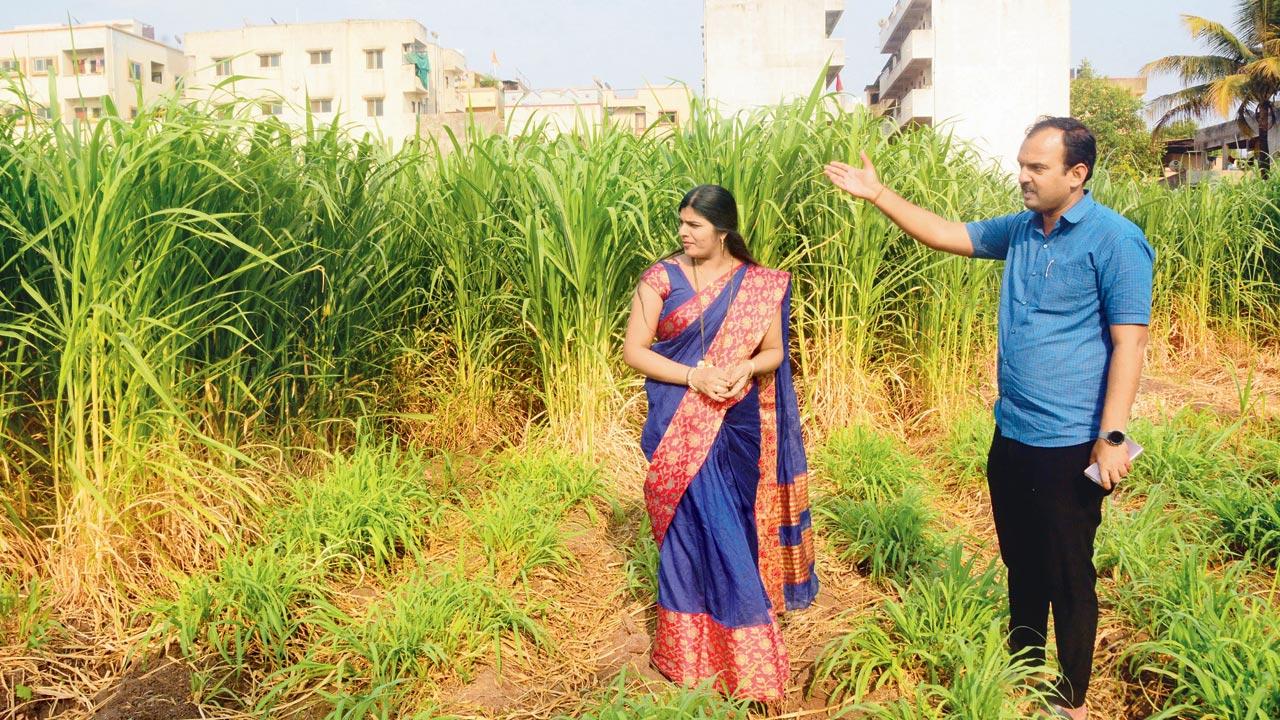 Swapnil Kalokhe, former sarpanch of the erstwhile Dehu Gram Panchayat, and his wife Rasika Swapnil Kalokhe, who has been elected as the new Nagar Upadhyaksha at their farm in Dehugaon. Kalokhe says that they haven’t stopped people from consuming meat or fish. “It’s not our place to do that. In fact, we have a decent Muslim population here and we don’t dictate what they eat. We are a peace-loving community”
Swapnil Kalokhe, former sarpanch of the erstwhile Dehu Gram Panchayat, and his wife Rasika Swapnil Kalokhe, who has been elected as the new Nagar Upadhyaksha at their farm in Dehugaon. Kalokhe says that they haven’t stopped people from consuming meat or fish. “It’s not our place to do that. In fact, we have a decent Muslim population here and we don’t dictate what they eat. We are a peace-loving community”
A lot has changed in Dehugaon over the years. Sandwiched between the busy township of Dehu Road, which is also home to the Army cantonment, and the auto and IT hub of Pimpri Chinchwad, Dehu has a muscle for development. In the last 15 years, all the tile-roofed mud houses have made way for two and three-storey bungalows and apartment buildings. And yet, a majority of the families still subsist on rice and sugarcane farming, and are pure vegetarians. Idols of Sant Tukaram Maharaj are venerated in every home. His image is a looming presence in every nook and cranny of Dehugaon. It’s also where Dalit leader Babasaheb Ambedkar is celebrated. His cause wasn’t far removed from that of the saint. Once a gram panchayat, Dehu’s population has quadrupled to 40,000 in the last many years, leading to the panchayat’s dissolution, in order to make way for a Nagar Panchayat, elevating Dehu’s status to a rural township. “This was just before the COVID outbreak,” Kalokhe tells us, when this writer meets him at his residence. Without a governing body in place, a lot of rules, he informs, were thrown out of the window—the meat and fish ban, being the most problematic among them.
The sale of meat and fish has been an issue of contention in this temple village for nearly a century. Sanjay More, trustee of Shri Sant Tukaram Maharaj Sansthan, shows us an old file comprising a yellow stack of papers. Among these is a hand-written notice issued by the district collector in 1925, asking locals to desist from selling meat or fishing in the holy river of Indrayani, which originates near Lonavla. “Sant Tukaram Maharaj ji believed in non-violence, and that’s why it goes against his teachings to cut or sell meat here,” he says, during a visit to the nearly 400-year-old temple. A 1952 order by the Kirkee (now known as Khadki) court against one Maruti Tulshiram Bhokare, Govind Ramchandra and Pandharinath Bapu Shingare, mentions a fine of R50 for fishing in the river. Back in the day, community leaders were also given a bandook, without bullets, to scare locals from fishing, says More.
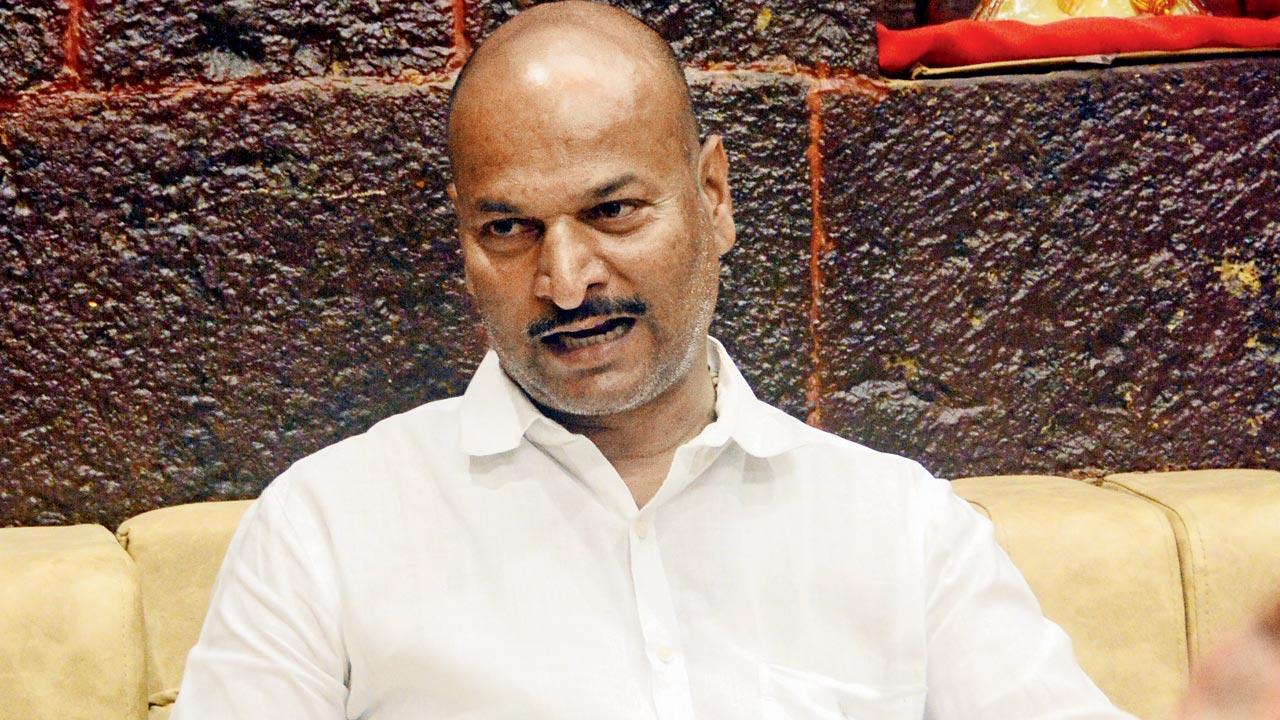 Sanjay More, trustee of the temple
Sanjay More, trustee of the temple
Legend is that Sant Tukaram Maharaj immersed his gathas (abhangs) in the river, after his writings were challenged by the upper caste, who claimed that a man of a lower caste, cannot be a man of letters. Regretting his own actions, Tukaram Maharaj waited in front of the river for 13 days, without food or water, when suddenly one day, the gathas, written on leaves, rose on their own; these were then distributed among his followers. “The fish in the river had protected these gathas from getting submerged, which is why they are venerated as devmas,” explains Kalokhe. It’s also one of the reasons why fishing was banned here for the longest time, adds More, who is a descendant of Sant Tukaram’s family. “It was a purely vegetarian community, before migrants moved into the neighbourhood. That’s when the problem began.”
Kalokhe says that they haven’t stopped people from consuming meat or fish. “It’s not our place to do that. In fact, we have a Muslim population here and we don’t dictate what they eat. People would buy their meat from the neighbouring Dehu Road, which is just a few kilometres away. Our problem is with it being sold openly. This never happened before COVID.” According to him, when the outbreak occurred, the consumption of eggs and meat suddenly increased among locals. “Many claimed that to fight the virus, you had to eat a protein-rich diet,” adds Kalokhe. “Because people couldn’t step out of their homes during the lockdown, the demand for meat increased locally.” Kalokhe says that sensing an opportunity, migrant workers who lost their jobs during this time, took shops on rent and started selling meat openly. A total of 12 new shops came up during this period, he estimates. “But, how could we stop them?” asks the former sarpanch. “The gram panchayat had been dissolved, and we no longer had any authority to take action,” he says, adding that his attention had anyway been diverted into feeding the 3,000-odd stranded devotees, who had come for the annual visit to Sant Tukaram’s mandir in March 2020, on the occasion of his death anniversary.
![Smita Shailesh Chavan (left), a housewife, who is now the Nagar Adhyaksha of the Nagar Panchayat, says her mother-in-law Suman Gopal Chavan, who became the first woman sarpanch of the gram panchayat in 2002, had enforced the meat ban when she was in charge. “After that people had stopped selling it completely [until recently],” she says](https://images.mid-day.com/images/images/2022/apr/dehu-april-pic-d_e.jpg) Smita Shailesh Chavan (left), a housewife, who is now the Nagar Adhyaksha of the Nagar Panchayat, says her mother-in-law Suman Gopal Chavan, who became the first woman sarpanch of the gram panchayat in 2002, had enforced the meat ban when she was in charge. “After that people had stopped selling it completely [until recently],” she says
Smita Shailesh Chavan (left), a housewife, who is now the Nagar Adhyaksha of the Nagar Panchayat, says her mother-in-law Suman Gopal Chavan, who became the first woman sarpanch of the gram panchayat in 2002, had enforced the meat ban when she was in charge. “After that people had stopped selling it completely [until recently],” she says
In Dehu’s Nagar Panchayat election that happened in January this year, after a two-year delay, 11 out of 17 women were elected to power, says Kalokhe. Apart from one BJP member, the rest belong to the Nationalist Congress Party (NCP). While Smita Shailesh Chavan has been elected as Nagar Adhyaksha, Kalokhe’s wife Rasika Swapnil Kalokhe has become the new Nagar Upadhyaksha. It’s the first time that two women are in power.
Two months into the historic win, the annual pilgrimage on Tukaram Maharaj’s death anniversary was opened to devotees again. “It’s around this time that we noticed something disturbing. All the meat shops were open during this time. For the Varkaris who come from far away, this would have been disconcerting.”
Smita Shailesh Chavan, a homemaker, who is now the face of the Nagar Panchayat, is the daughter-in-law of Suman Gopal Chavan, the first woman sarpanch of the gram panchayat in 2002. “This [the meat and fish ban] is an old issue,” she says. “My mother-in-law had fought for the ban back then. And after that people had stopped selling it completely. What we are doing is only implementing the existing law.”
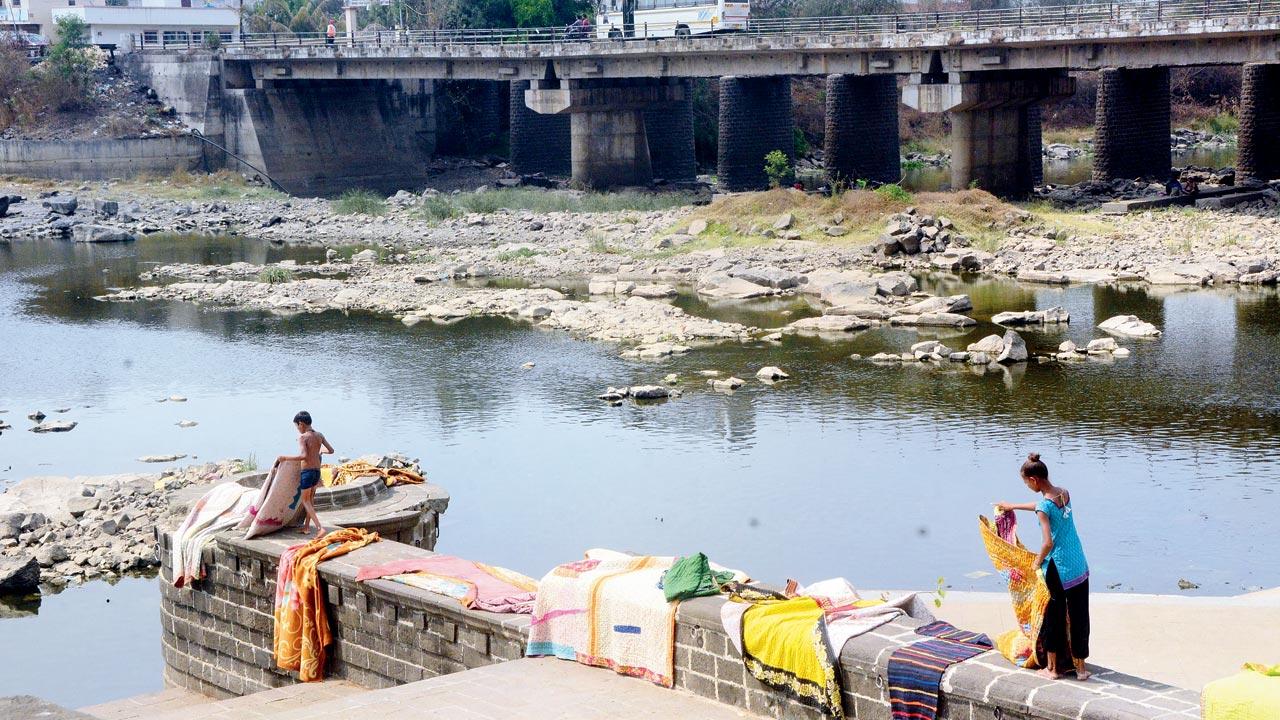 The Indrayani river, which originates near Lonavla, is considered holy by devotees. Legend is that the fish from the river protected Sant Tukaram Maharaj’s gathas from getting submerged. They were venerated as devmas. It’s also one of the reasons why fishing has been banned in the river, say locals
The Indrayani river, which originates near Lonavla, is considered holy by devotees. Legend is that the fish from the river protected Sant Tukaram Maharaj’s gathas from getting submerged. They were venerated as devmas. It’s also one of the reasons why fishing has been banned in the river, say locals
Over a week ago, the Dehu Nagar Panchayat announced a ban on all shops or restaurants selling meat and fish. A notice shared on WhatsApp with local residents, stated that legal action would be taken against those found selling meat. News reports stated that any hotel or business selling cooked or raw meat would be “fined R5,000 in the first instance and R25,000, subsequently”. However, Kalokhe says that no fine was issued. “We didn’t enforce the ban immediately. As Nagar Panchayat members, we first visited the locals who had rented these shops, and spoke to them about the law. They complied without any argument, as they respect and understand the sanctity of the place,” he says. Though a flying squad had been instated, Kalokhe says it was never used. On April 1, every meat and fish shop in the rural township had shut for business.
Speaking with mid-day, K Raju, national coordinator for the SC, ST, OBC and Minorities Departments of the Indian National Congress, whose new book, The Dalit Truth (Penguin Random House), reflects on the battles against the lies perpetrated by the caste system, says, “I think this restriction is certainly not empathetic to the eating habits of certain groups of people. It stems from this belief of superiority that is given to you by the caste system—a dominant group controlling others. This was why Babasaheb Ambedkar fought for the annihilation of the caste system.
It [such bans] also works against the ethics of Sant Tukaram Maharaj and what he professed during his lifetime.”
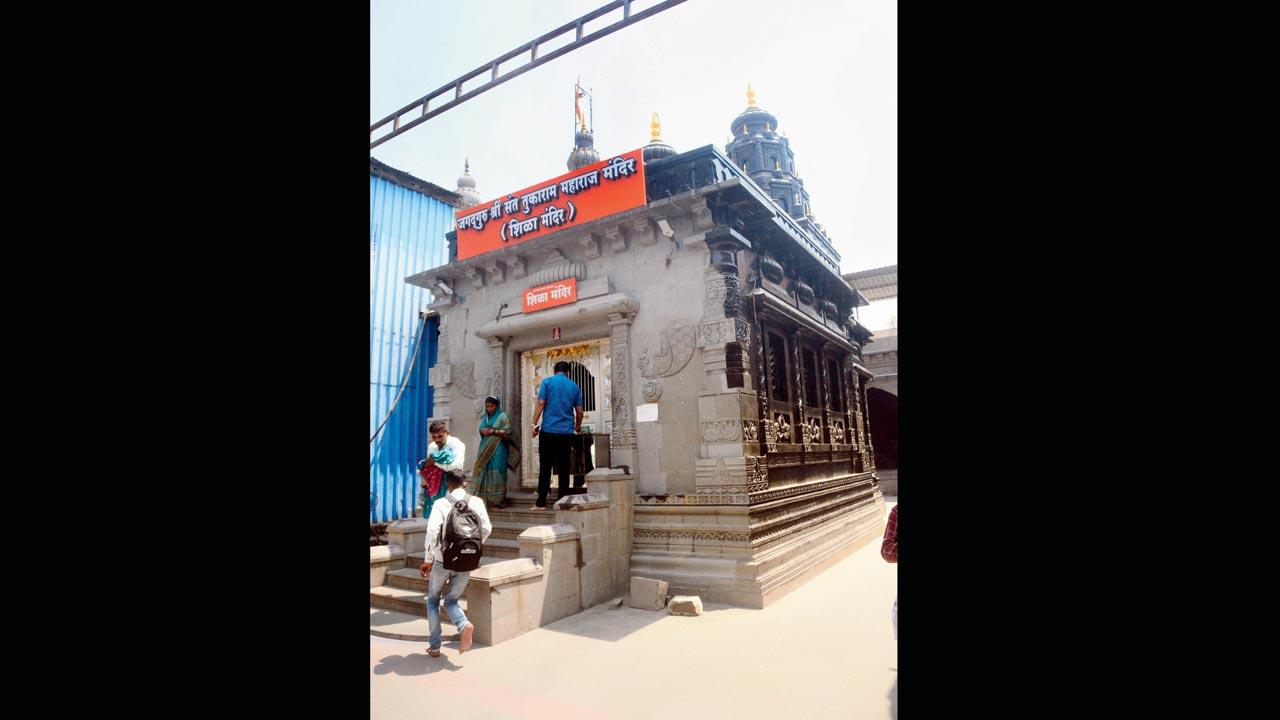 PM Narendra Modi will be inaugurating a new statue of Sant Tukaram Maharaj at the Shila Mandir run by Shri Sant Tukaram Maharaj Sansthan in Dehugaon
PM Narendra Modi will be inaugurating a new statue of Sant Tukaram Maharaj at the Shila Mandir run by Shri Sant Tukaram Maharaj Sansthan in Dehugaon
Sometime before dusk, after meeting with the authorities, this writer, along with the mid-day photographer, drove around Dehugaon in the hope of finding men, whose businesses had suffered a massive dent because of the new order. Our ignorance about the local cuisine led us to a restaurant that sold “maswadi thali”. What we thought was a fish thali, turned out to be a vegetarian delicacy, a chickpea flour dish stuffed with onions, coconut and sesame seeds. We also visited Chavan Nagar, a tiny neighbourhood where Ambedkar’s followers reside. A friendly senior citizen told us that they all eat meat and fish, but now with the ban, they have to travel outside the township’s limits when they crave meat. “But, it’s not very far away. Just five to 10 minutes, so that is fine,” she says. “Those who want to eat meat, will travel any distance,” she adds. Before we left from there, she told us about “Kazi,” the oldest chicken seller of Dehu, who lived not too far away from Sant Tukaram Maharaj Gatha Mandir, a temple owned by a private trust that has displayed all his gathas on marble plaques. On our way, we spotted a chicken stall that has been shut since April 1. The grocery store owner, whose shop is on the opposite side of the road, says that the people who worked at the stall, haven’t been seen since.
After nearly an hour, we managed to locate the home of Ahmed Ibrahim Kazi, a long-time resident of Dehugaon. Right next to the entrance of his home is a solid bark, used to slaughter chicken. He got a WhatsApp message on his phone last week, stating that meat had been banned. “This is all I know. Customers aa hi nahin rahe hain. Mera toh kaam khatam ho gaya,” says the senior citizen. Kazi has been selling chicken in Dehugaon for the last 40 years. “I never had a shop of my own, neither did I sell in public. People who wanted to buy, would come to my home.” He admits that things began to change during the last couple of years, after people started selling meat and fish more openly. “They did that brazenly. Because of them, even I started receiving warnings.” He remembers how last year, while he was slaughtering a chicken for a customer, local authorities suddenly barged in, and took him to the police. “They even took my half-slaughtered chicken and [butcher’s] knife.” A local helped secure his release. His wife, Aashubi Ahmed Kazi, says that they lost their 13-year-old son, who drowned in the Indrayani several years ago. “We have three daughters, and they now look after us. Kamane wala aur koi nahin hai,” she says. Kazi has stopped selling chicken since April 1, due to the fear of legal action.
“I am aware of the repercussions. My wife has had so many surgeries, I don’t have the money for this. I am fine with them shutting my business, but the least they can do for people like me, is give me employment somewhere else. I will do any work that brings food on my table.”
 Subscribe today by clicking the link and stay updated with the latest news!" Click here!
Subscribe today by clicking the link and stay updated with the latest news!" Click here!







